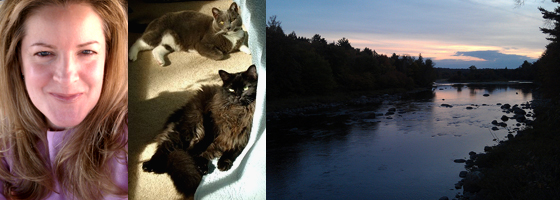“If a person’s basic state of mind is serene and calm,
then it is possible for this inner peace to overwhelm
a painful physical experience.”
–The Dalai Lama
Good Morning! I’m excited to share a terrific article with you today by best-selling author and speaker Peter Russell. Peter is the author of “The Brain Book,” “Waking Up in Time: Finding Inner Peace In Times of Accelerating Change,” among many others. His article “Meditation – The Art of Letting Go” will teach you the principles of meditation, letting go, and achieving a “still mind.”
Enjoy ♥
 “Meditation – The Art of Letting Go”
“Meditation – The Art of Letting Go”
by Peter Russell
Meditation is the art of doing nothing. In today’s hectic, achievement-focused world we are almost always doing something. This “doing” mode is fueled by the belief that if only we did enough of the right things, had enough of the right experiences, earned enough money, or owned enough possessions we would be happy. As a result our minds are seldom, if ever, still. Instead we are busy fretting about what we should have done or said, planning what we should do or not do, say or not say, in the future, and worrying whether or not we will obtain the things and experiences we think we need to be happy.
Ironically this mental agitation deprives of the very thing we seek. In the final analysis we all want to be happy, to be more at peace in ourselves, yet a mind that is worried cannot, by definition, be a mind that is at peace.
This is why spiritual teachings the world over have recommended some or other form of meditation—some way of allowing the mind to become still, and thereby find the peace we seek.
The allowing is important. Meditation is not another mental activity, another form of mental “doing.” Most techniques of stilling the mind are exercises in attention rather than exercises in thinking. You do not quiet the mind by changing what you think about, but by changing the direction and quality of your attention. In their own particular ways meditation techniques turn the attention away from the world of the senses—the world we thought would bring us peace of mind—and inwards towards our inner essence.
As the mind begins to settle down it discovers an inner calm and peace. The habitual mental chatter begins to fade away. Thoughts about what is going on in meditation, what time it is, what you might say or do later, occupy less and less of your attention. Your feelings settle down, and your breath can grow so gentle as to virtually disappear. What thoughts there are became fainter and fainter, until finally the thinking mind falls completely silent.
Indian teachings call this state samadhi, literally “still mind.” This, they claim, is a fundamentally different state of consciousness from the three major states we normally experience—waking, dreaming, and deep sleep…
Click to Continue Reading “Meditation – The Art of Letting Go”
Copyright Peter Russell. All Rights Reserved.
I’d love to hear your thoughts and comments about Laura’s article! Please scroll down and leave your comments below.
And, if you haven’t already done so, be sure to pick up your special package of inspirational goodness exclusively for our Daily Soul Retreat Newsletter Subscribers — a “Soul Retreat Gift Pack” filled with over $300 worth of Ecourses, Ebooks, Audio Workshops and Meditations, donated by our awesome SoulfulLiving.com authors. If you aren’t already subscribed, click here for all the details. If you are already subscribed, watch your Daily Soul Retreats for all the details.
Wishing you a peaceful, meditative day!!
Soulfully,
Valerie












